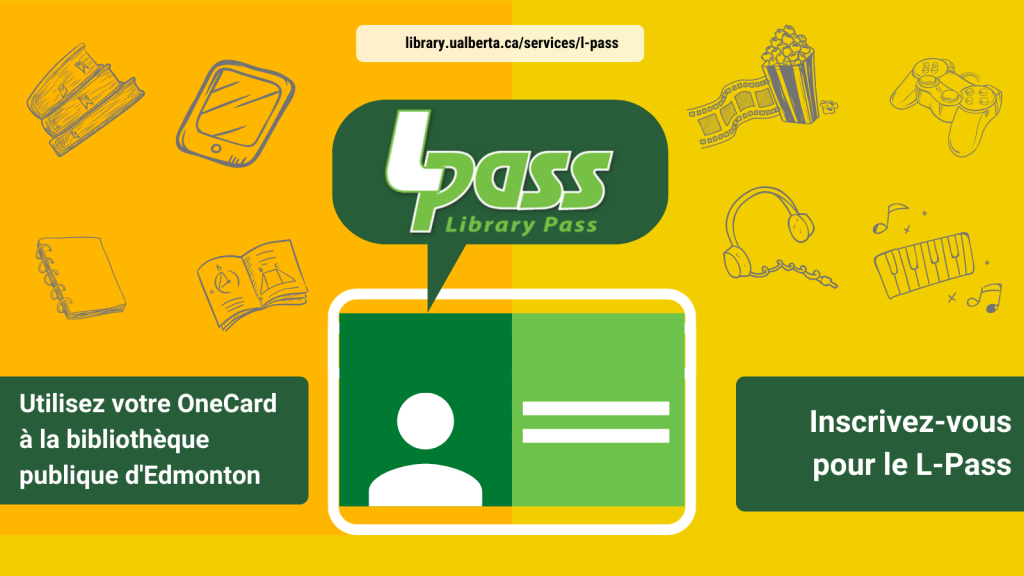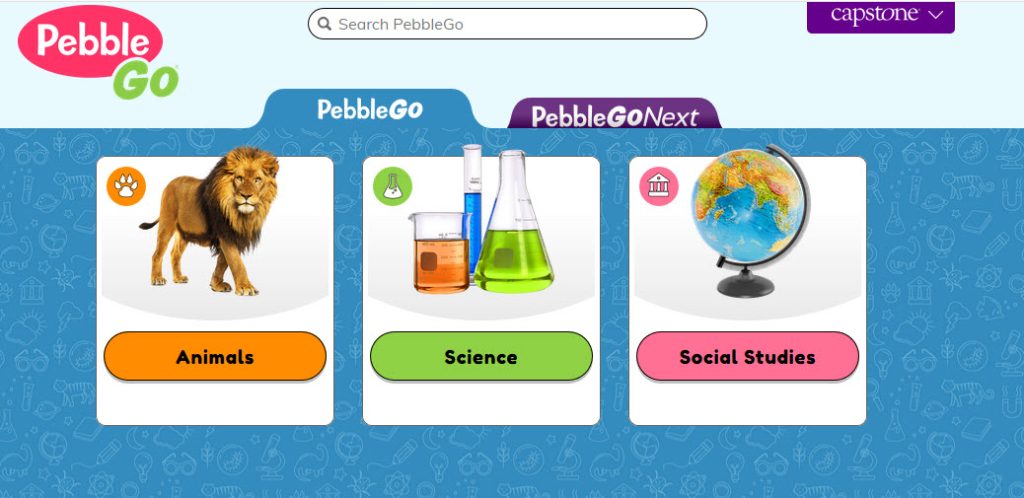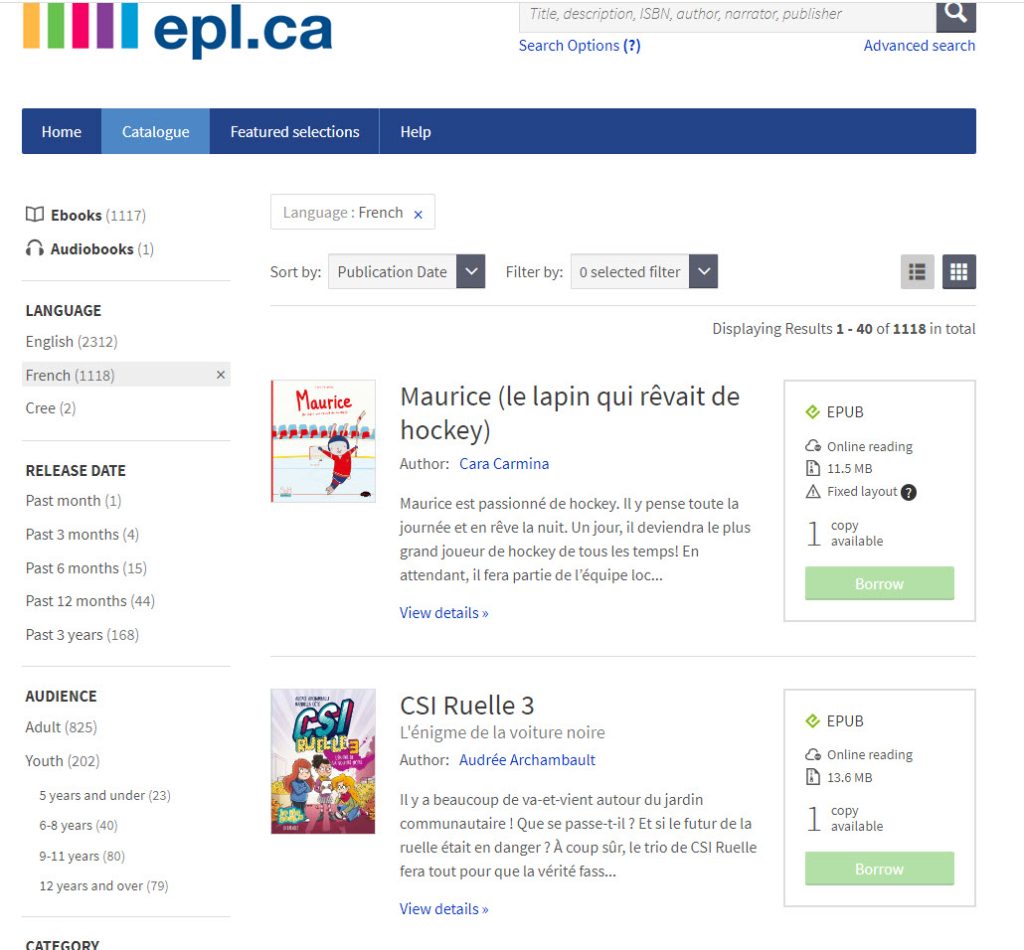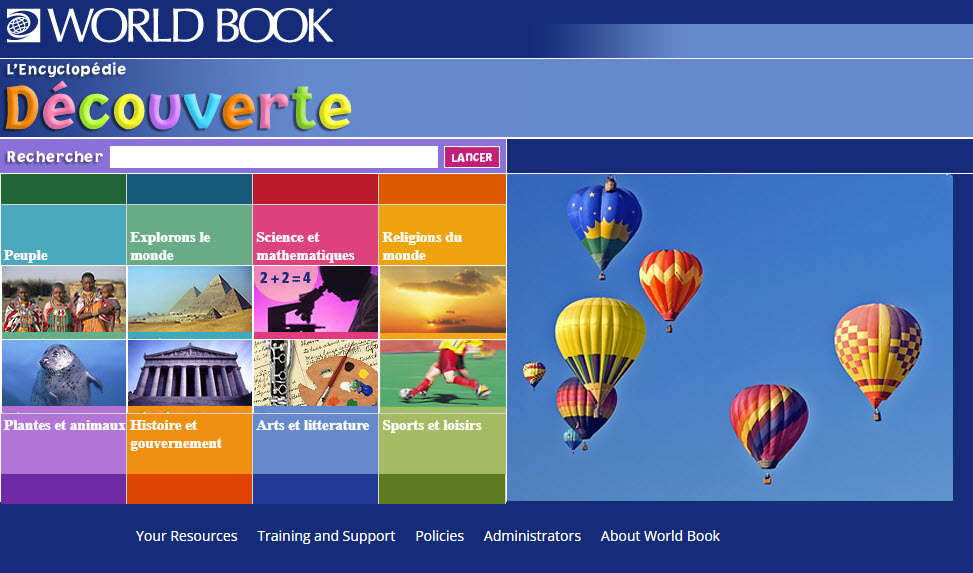Plus tôt cette année, le Centre de référence en ligne (CRL) de LearnAlberta a cessé d’exister. Cela signifiait la fin de l’accès de l’université de l’Alberta à des ressources telles que Britannica Online School Edition K-12, PebbleGo et Gale Science in Context. Ne craignez point chers éducateurs et étudiants en éducation. Ce n’est pas parce que nous n’avons plus accès à ces ressources qu’il n’y a pas d’autres options disponibles pour les gens de l’université de l’Alberta. Nos amis de la bibliothèque publique d’Edmonton (EPL) disposent de nombreuses ressources liées à l’apprentissage préscolaire auxquelles les étudiants, le personnel et les professeurs actuels peuvent accéder avec leur L-Pass.
Qu’est-ce qu’un L-Pass ? En résumé, votre OneCard peut être enregistrée auprès d’EPL, ce qui vous permet d’emprunter des articles et d’accéder aux ressources en ligne disponibles sur leur site Web. Pour enregistrer votre OneCard en tant que L-Pass, remplissez ce formulaire en ligne pratique. Le processus est rapide et une fois que vous vous êtes inscrit, votre accès EPL est instantané.

Pour ceux qui s’intéressent aux ressources pour les jeunes apprenants (et certains d’entre nous, les moins jeunes), voici un raccourci pour trouver la mine de ressources en ligne d’EPL, y compris de nombreuses anciennes bases de données ORC. Visitez la section AZ Kids Resources du site Web d’EPL. Certains des points saillants incluent :
- PebbleGo Worldbook Encyclopedia Online
- PebbleGo Animaux
- PebbleGo Science
- PebbleGo Études sociales
- PebbleGo Next Science
- Bookflix
- Canada in Context
- National Geographic Kids
- PowerKnowledge Life Science
- PowerKnowledge Science physique
- PowerKnowledge Earth & Space Science
- Teen Health & Wellness
- Muzzy
- Early World of Learning
- Teen Book Cloud

Pour des ressources en français il y a L’encyclopédie Découverte et Cantook


Merci pour la lecture ! Si vous aimez nos articles sur le blog ? Nous vous invitons à vous inscrire à notre bulletin (faites défiler vers le bas à droite de cette page). Si vous appréciez notre blog? Vous apprécierez également notre présence sur les réseaux sociaux ! Retrouvez-nous sur @uofalibrary sur Instagram et Twitter!
